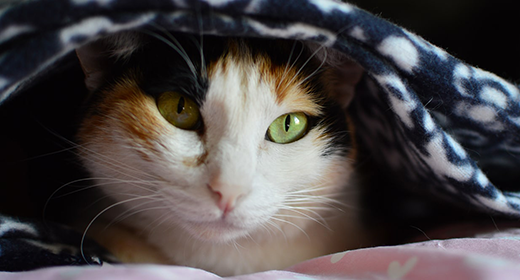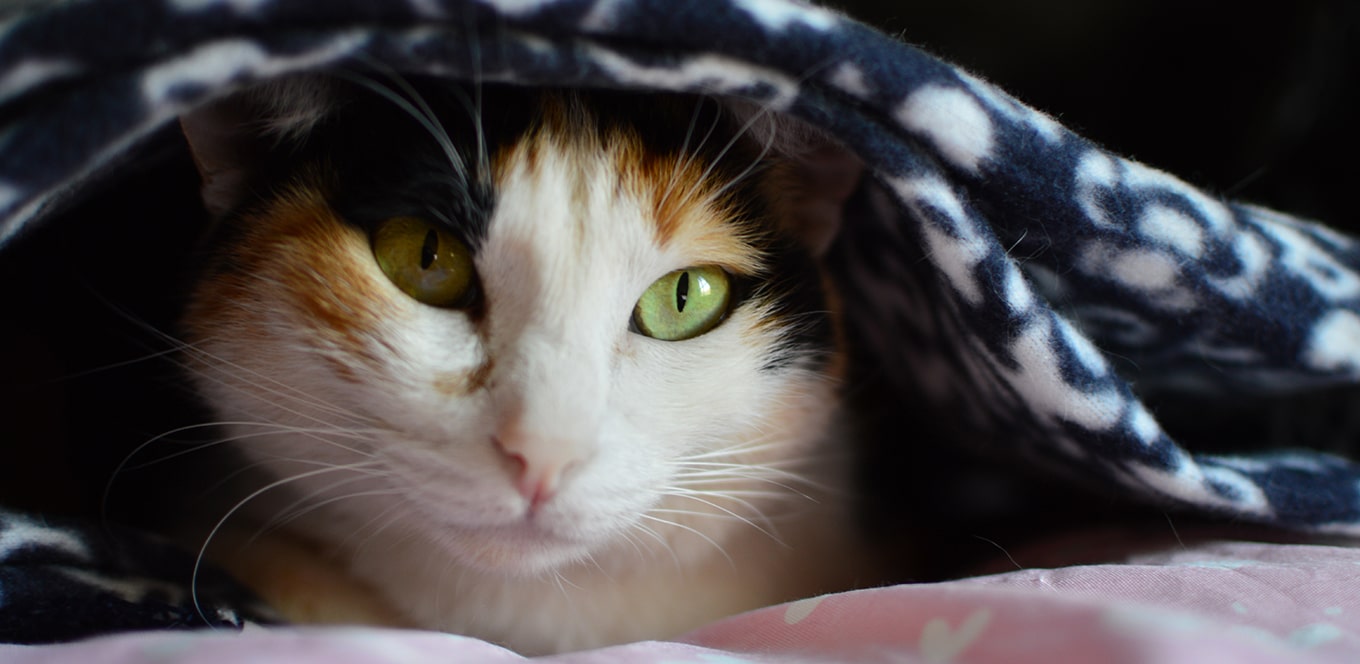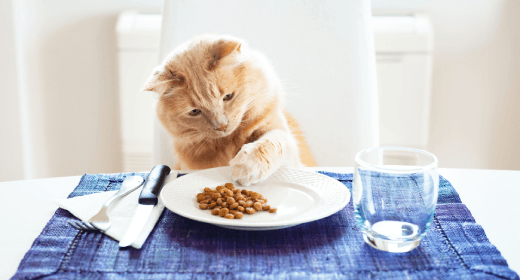

We all love corn. And why not? Corn on the cob is soft, sweet, and buttery. Just the sight of it can make our mouths water. However, did you know that even cats like corn. This might make you wonder whether corn is good for your feline friend. The answer is yes. In fact, corn is present in many cat foods. It is packed with protein, vitamins, minerals, and fiber. Continue reading to know the importance of corn for cats.
Since cats are omnivores, they need a high amount of protein to support their bodily functions. Hence, corn alone is not enough. One medium ear of corn contains 3.5 grams of protein. And cats need at least 2 grams of protein per pound of body weight.
If your cat is around 8 pounds, they require 16-gram protein at the least. Basically, your cat might have to eat at least 4 or 5 medium ears of corn. And doing that would increase their calorie intake. Hence, corn can only be a part of your cat’s day-to-day diet, not the whole meal. That being said, here are a few benefits of including corn in your cat’s diet:
Carbohydrates might not be the most vital nutrient for cats; however, it is highly digestible. This ensures that your fur baby feel energetic throughout the day. When your cat gets enough carbs, they do not have to use protein to produce energy. Proteins available in their body can focus on their primary role--muscle and tissue growth.
Corn is packed with fatty acids which maintain skin health and prevent inflammation. These fatty acids must be supplied through a balanced diet because your cat cannot produce them in their body.
Antioxidants are essential for cat health since they minimise damage to cells. Vitamin E optimises a cat’s T-cell activation, whereas beta-carotene increases antibody levels and improves vaccine recognition. Here's good news for you: corn is rich in both!
Corn is included in cat food formulas in various forms, such as ground corn, corn meal, corn grits, corn gluten meal, and corn bran. When reviewing the ingredients list on cat food packaging, you may see one or more of the following corn ingredients:
Corn ingredient | What it is |
Ground corn or corn meal | Finely ground and chopped whole corn |
Corn grits | The portion of ground corn containing little or none of the bran (fiber) or germ (the small protein portion at the end of the kernel) |
Corn bran | The outer coating of the corn kernel; largely fiber |
Corn gluten meal | A dried protein source that remains after the corn’s bran, a large portion of carbohydrates, and germs have been removed |
As a cat owner, you might want to serve your feline friend the best corn cat food. However, not all types of corn snacks are suitable for your pet. As a cat parent, you want to avoid feeding your fur baby with corn chips, popcorn, fried kernels, and corn husks. Stick to grilled or boiled sweet corn without any seasoning.
Corn is included in the formulas for all IAMS cat foods, including IAMS™ ProActive Health™ Healthy Adult and ProActive Health™ Healthy Kitten. It is more appropriate to associate the corn used in our products with “cornbread” rather than “corn on the cob.” The difference is similar to cooked corn versus raw corn. We use only the highest-quality corn in our products. The corn is finely ground, which breaks up the outside covering of each kernel, and then it is cooked for better digestibility.
Corn grits and cornmeal are used in our foods as high-quality sources of carbohydrates, which are an important source of energy. Corn generally also results in lower glycemic and insulin responses than rice. This can be especially beneficial for senior and overweight cats.



Author: Dr. Siti Zaenab
Most owners understand that protein is one of the key nutrients that cats need to thrive and stay healthy, but what many may not fully realize is just how important it is for their long-term wellbeing. Protein is a cat’s primary energy source, and cats need more protein than other domestic animals like dogs and even people. In order to fuel their bodies and nervous systems, cats require more than 50% of their dietary calories to come from protein.
Cats then break the protein down into 11 specific amino acids, which are also known as essential amino acids, which are not found in cats’ natural systems. These essential amino acids are the building blocks that create new proteins and make glucose for energy. On the other hand, amino acids that are found within cats’ natural systems are called non-essential amino acids, and these are not required in a cat’s diet.
A cat’s diet requires animal protein that contains all the essential amino acids that cats need but are not found in plant proteins. This aligns with the understanding that cats are obligate omnivores, needing meat-based protein to survive.
The slightest deficiencies in any of the essential amino acids can lead to serious health problems for cats. For instance, taurine deficiency can cause a host of problems such as blindness, inadequate immune response, poor growth and poor reproductive function.
Another essential amino acid, arginine, is important to remove ammonia from the cat’s body through urine. Without sufficient arginine content in a cat’s diet, ammonia can build up in the bloodstream, which is toxic for the cat. Additionally, the essential amino acid histidine, is a structural protein that acts as a precursor to a number of neurological compounds such as histamine. Histidine deficiency can result in weight loss, refusal to eat, and may result in cataracts.
Cats can consume their dietary protein and obtain their essential amino acids through animal products like chicken and fish. Chicken has one of the highest biological values of all the meats, making it an excellent protein source for cats. It is also a good source of tryptophan, calcium, potassium, and vitamin B6. Fish is also a highly digestible protein source, and fish like salmon can provide cats with important omega-3 fatty acids.
While natural food options that somewhat fulfil a cat’s protein needs are available, owners these days go the extra mile to deep-dive into research to ensure better lives for their cats. Besides relying on online sources like the Internet, cat owners are also seeking more counsel from vets about their beloved cats’ needs, while also becoming more selective in their decisions and detailed in their questions, which is very encouraging to see as a vet. With this spirit, owners can better understand that their cats require adequate protein to stay healthy.
Along with veterinary guidance, owners are on the look-out for food solutions that contain all the essential protein contents in one place. We are finding that they are increasingly turning to products like IAMS products, which contain protein necessary for a variety of needs, such maintaining a healthy coat, strong muscles, and good digestion. With IAMS products, cats can get their protein needs from chicken with IAMS Healthy Adult with Chicken, with real chicken as its main ingredient, and from fish with IAMS Healthy Adult with Ocean Fish, with real fish as its main ingredient, both aiding in healthy digestion, skin and coat, teeth, and muscles, to name a few.
Owners must ensure that their cats’ diets provide complete and balanced nutrition, a key component of which is adequate protein. This can be achieved through consulting with vets, researching good protein sources, and sharing knowledge with fellow cat owners, among others. With such a concerted effort, cat owners can be assured about keeping their cats as healthy and happy for as long as possible.